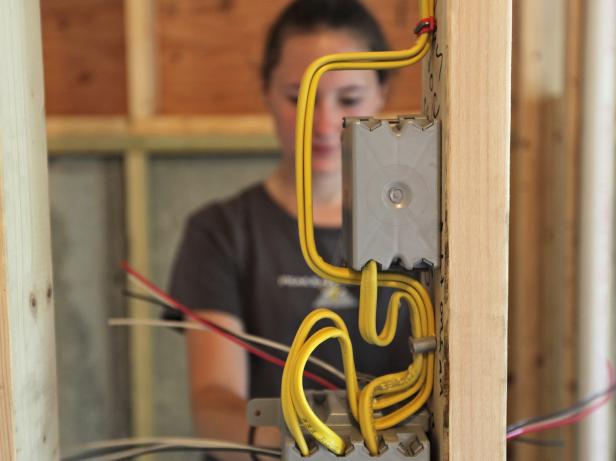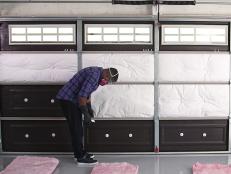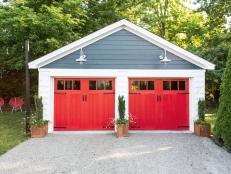Garage Makeover: When You Should Hire a Pro

Even if you’re a seasoned DIYer, there are some jobs that are too dangerous, too difficult, or just too easy to get wrong. Yes, your grandfather may have done every one of them when he built his house from scratch back in the day — but that doesn’t mean you should do the same. Here are four tasks for which you absolutely, positively need professional help.
Electrical Work
Most building pros consider this the No. 1 no-go for homeowners to handle. Small, simple tasks, such as installing a fan or a garage door opener, are fine for most DIYers. Major wiring, though, is another story. You could receive a nasty shock, start a fire or other serious consequences. Plus, building codes are complicated and evolve over time — this is one area in which you absolutely must have a crystal-clear understanding of the details.
Major Plumbing
Switching out a faucet on the utility sink? Yes. Going behind the walls to add water lines for a new laundry area? Please, no. Botched plumbing can have a ripple effect that culminates in serious water damage, to the tune of a four- or five-figure repair bill. Pay a plumber and preserve your peace of mind. This goes for gas lines too; you’ll sleep better if you don’t have to worry about gas leakage.
Wall Demolition
The exception to the always-hire-a-pro rule is if you’re sure (and we mean sure) that the wall isn’t load-bearing. If it is, you’ll eliminate crucial structural support, and your garage will collapse like a house of cards. Likewise, if you have any doubt as to whether the wall contains important electrical or plumbing systems, leave it alone and dial a contractor.
Removing Old Insulation
In older homes (1930s to 1960s), insulation may contain asbestos, and disturbing it can release a flood of hazardous fibers. If you have any doubt at all about your insulation, leave it intact until you can have an asbestos abatement professional come out to evaluate it. It’s impossible to tell solely by sight; testing is the only way to confirm. In addition, old pipes, boilers and more sometimes are wrapped with asbestos tape or blankets.













































